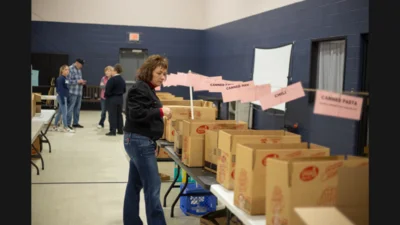In support of October as Domestic Violence Awareness Month, Mount Vernon’s New Directions is finalizing a handful of projects highlighting what it has done and will continue to do for the citizens of Knox County.
New Directions is a domestic abuse shelter and rape crisis center that serves survivors of domestic, intimate partner, and sexual violence.
From July 1, 2019, to June 30, 2020, New Directions has served double the number of people in shelter from the previous year-long period. Several studies have shown there has been an increase in domestic violence during the COVID-19 pandemic.
Among the projects the shelter has in the works is a ‘Why I Wear Purple’ web site and social media campaign that will feature more than 20 community partners— from law enforcement to a forensic nurse to a local prosecutor— discussing why they care about domestic violence, why they believe it can be prevented, and why response work is important in the community.
They're also hosting a book club that will meet via Zoom every Sunday from 3-4 p.m. beginning Oct. 4. The club will discuss the book ‘No Visible Bruises’ by Rachel Louise Snyder, which examines the realities of domestic violence while correcting common myths.
The shelter also plans to begin a podcast called TableTalks that will feature interviews with its staff about the details of the services they provide. Those will be published on the shelter’s website at noon every Friday.
“We serve women, children, men, all gender identities, all sexual orientations, everybody in shelter," Outreach & Grants Coordinator Jordan Shremshock told the Mount Vernon News. "We also provide help beyond shelter itself. Our advocacy services are pretty exhaustive. What we can’t offer in-house we have great community partnership across Knox County.”
New Directions began in 1982, and in 1983 the organization began housing survivors in an efficiency apartment rented from Interchurch Services.
Its roster of prevention and education programs have increased since the Delta Project became its first in 2003. Today, there are 12 such programs for boys, girls, men and women of all ages.
“Now we are able to fund all of these different programs,” Shremshock said. “At this point, we come at it from the perspective of, ‘What’s the need in the community,’ and then we’ll figure out a way to fund it on the back end. But we’re going to make it happen. That's been a shift in perspective that has been really cool.”







